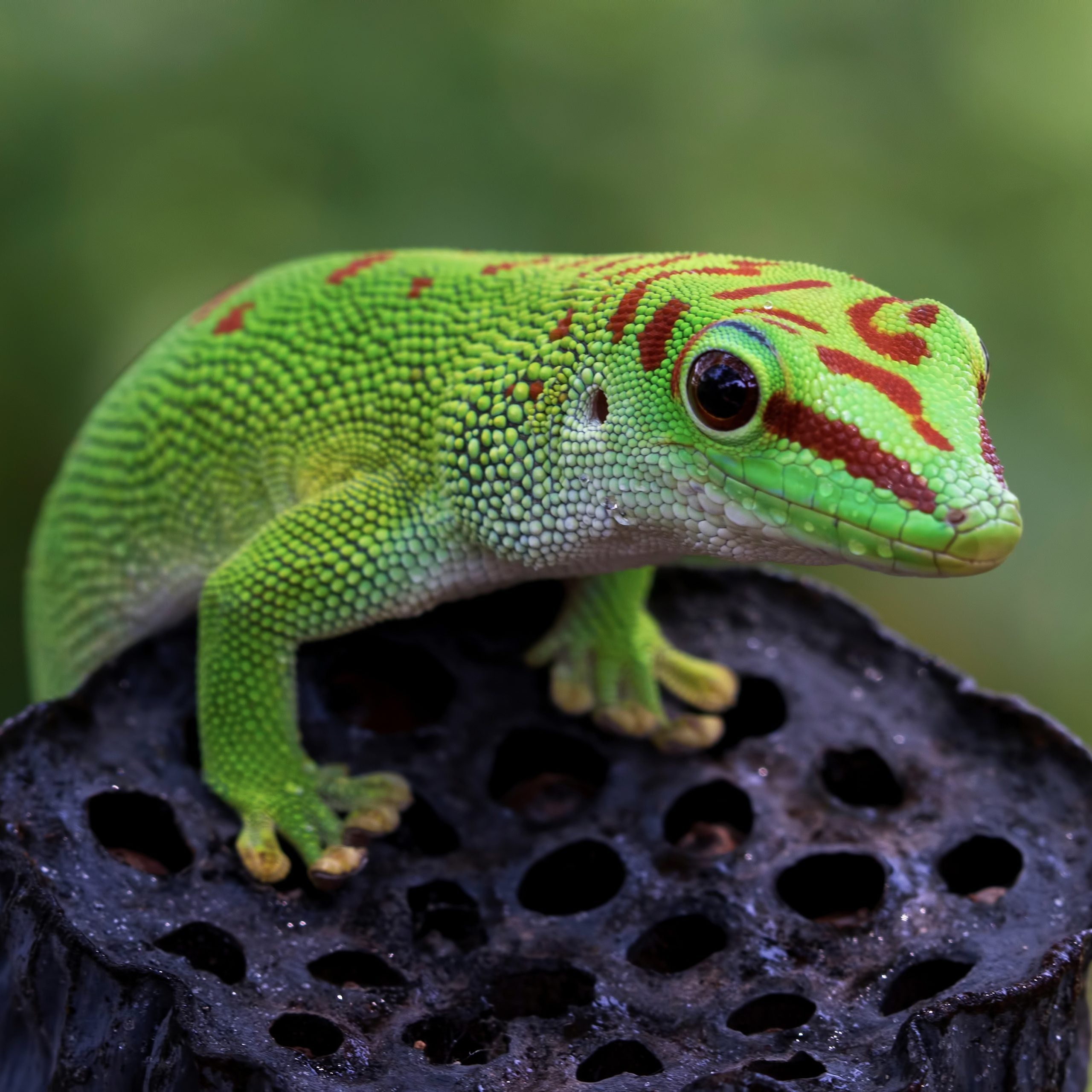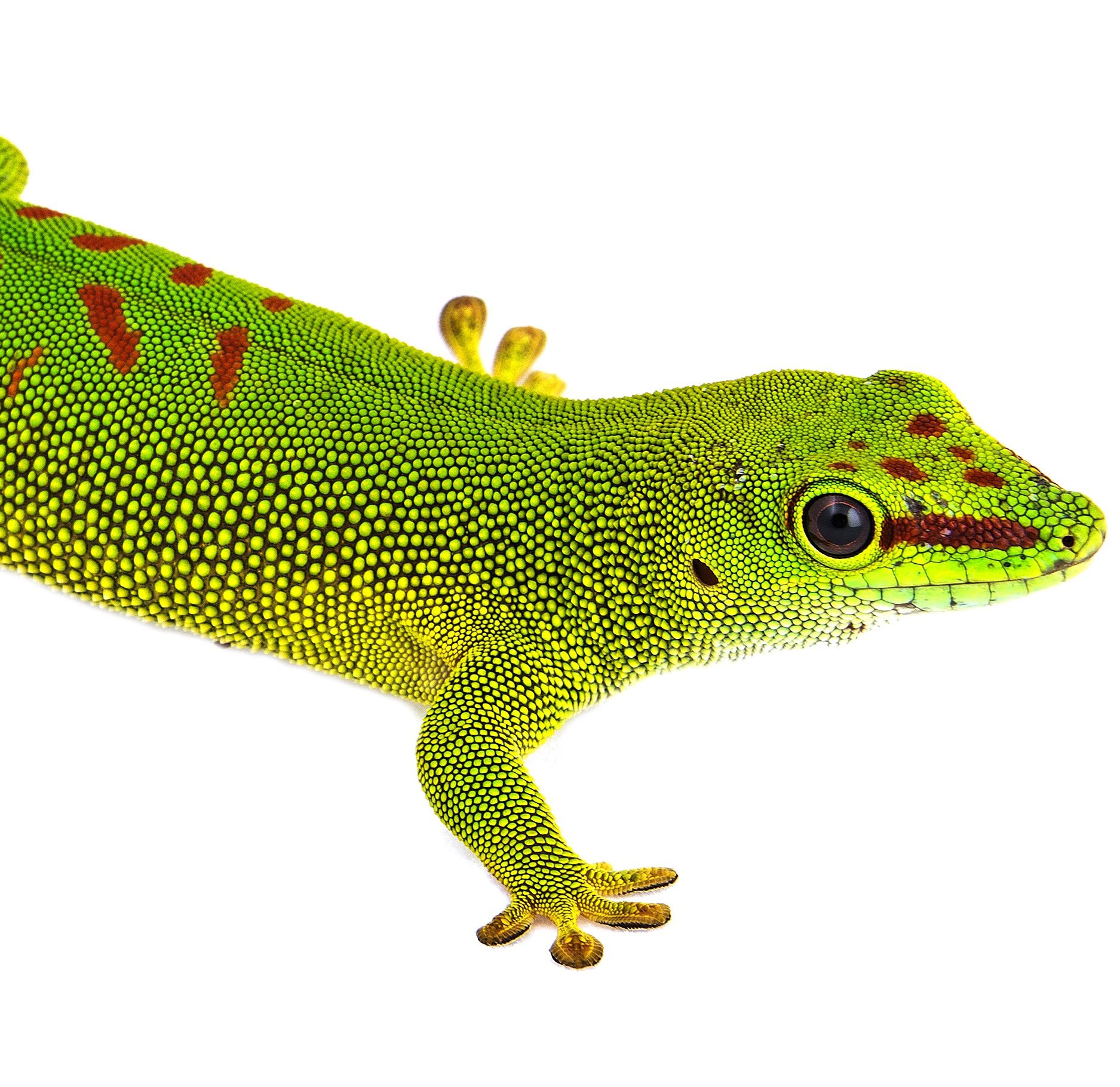Description
Common Name: Giant Day Gecko
Scientific Name: Phelsuma madagascariensis grandis
Distribution: Madagascar
Size: 5-9 inches
Life Span: 8-20 years
Size at present 5-6cm
Habitat:
1. Enclosure: A tall, vertically oriented terrarium (minimum size 18”x18”x24”) is necessary, as these geckos are arboreal and enjoy climbing. Glass enclosures are preferred due to their ability to maintain humidity.
2. Temperature: A gradient from 75-85°F (24-29°C) during the day with a basking spot of around 90°F (32°C). Nighttime temperatures can drop to 65-70°F (18-21°C).
3. Humidity: Maintain 60-80% humidity. Mist the enclosure twice daily to ensure adequate hydration and humidity.
Diet:
1. Primary Diet: Insectivorous and frugivorous. Feed a variety of insects (like crickets, mealworms) dusted with calcium and vitamin supplements. Also, offer fruit-based gecko diets or mashed fruits like banana, mango, or papaya.
2. Feeding Schedule: Feed adults every other day and juveniles daily. Adjust quantity based on the gecko's size and condition.
Lighting:
1. UVB Lighting: Essential for Vitamin D3 synthesis. Use a 5-10% UVB bulb for 10-12 hours a day.
2. Day/Night Cycle: Ensure a consistent light/dark cycle to mimic natural conditions.
Water:
1. Water Source: Provide a shallow water dish, though they primarily drink water droplets from foliage.
2. Misting: Regular misting helps maintain humidity and provides a drinking source.
Social and Behavioural Needs:
1. Social Structure: Generally solitary. Males are territorial and should not be housed together.
2. Environmental Enrichment: Include plenty of climbing branches, live or artificial plants, and hiding spots to simulate their natural environment.
Health:
1. Regular Check-Ups: Annual check-ups with a veterinarian familiar with reptiles.
2. Common Issues: Look out for signs of metabolic bone disease, stress (loss of appetite, lethargy), and skin infections.
Handling:
1. Temperament: They can be skittish and are not ideal for frequent handling. Handle gently and infrequently.
2. Escape Artists: Ensure the enclosure is secure, as they can be quite adept at escaping.
Order and get 120 reward points
Earn points by signing up for our rewards program


